Latest Updates
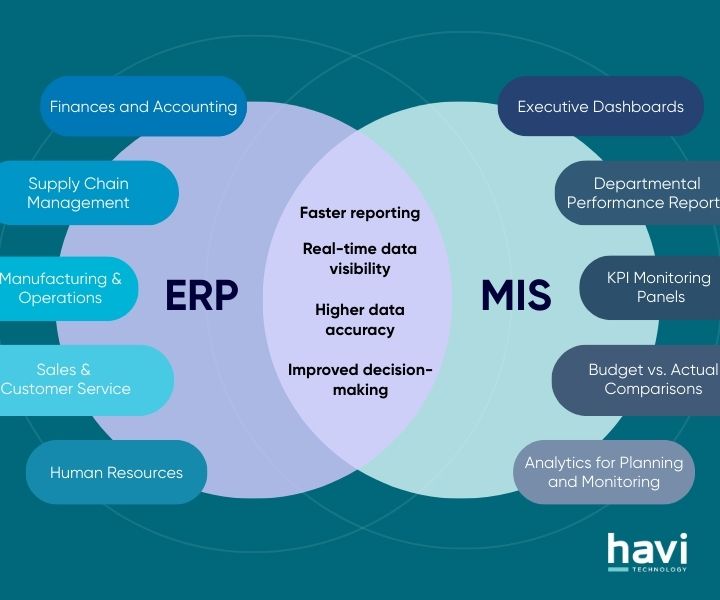
ERP and MIS serve different but closely connected roles in modern business systems . ERP systems execute and record operational transactions across finance, inventory, sales, and operations, while MIS...
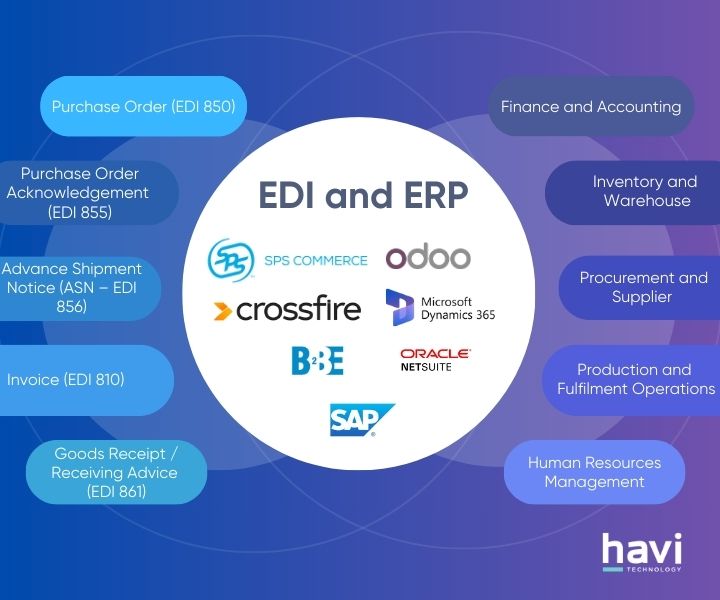
EDI and ERP: Differences, How They Work Together, and Why Integration Matters
EDI and ERP integration enables businesses to exchange standardised business documents, such as purchase orders, invoices, and shipping notices, directly between trading partners and internal systems ...
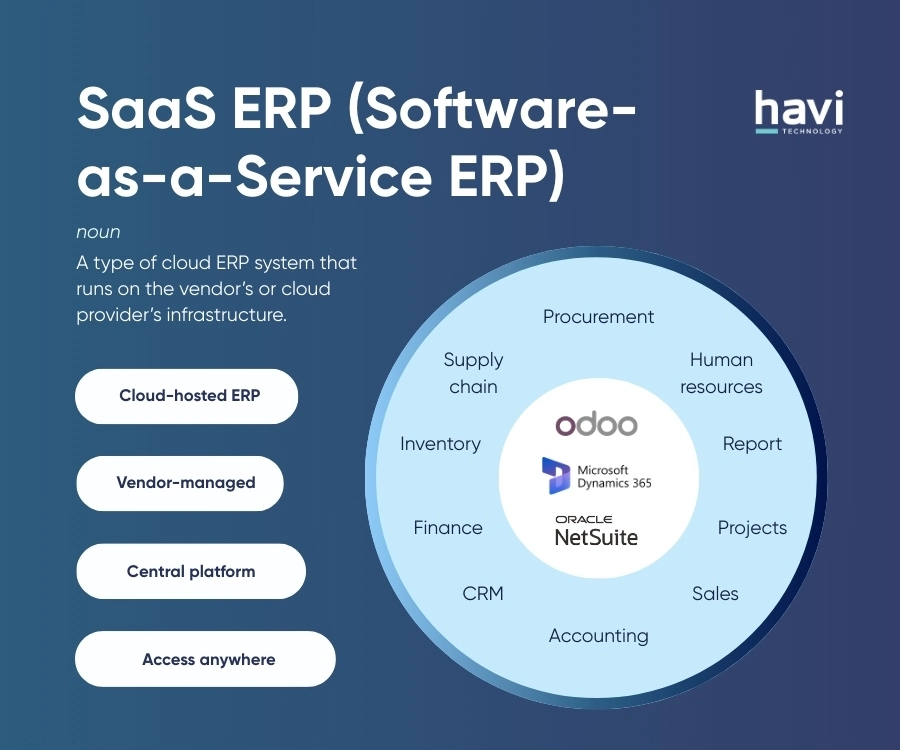
SaaS ERP 101: What It Is, Top Vendors, and How to Get Started
SaaS ERP is an enterprise resource planning delivery model in which applications are centrally hosted by the vendor and accessed via the internet on a subscription basis, with infrastructure, upgrades...
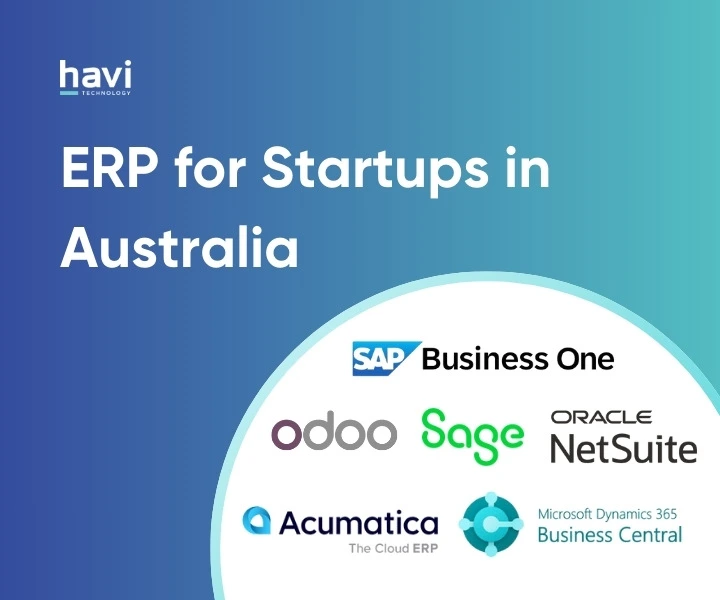
ERP for Startups in Australia: Top Solutions and When You Need One
ERP for startups is adopted when growing teams outgrow fragmented tools and need a single system of record to keep finance, sales, inventory, and reporting aligned . A startup ERP consolidates core wo...
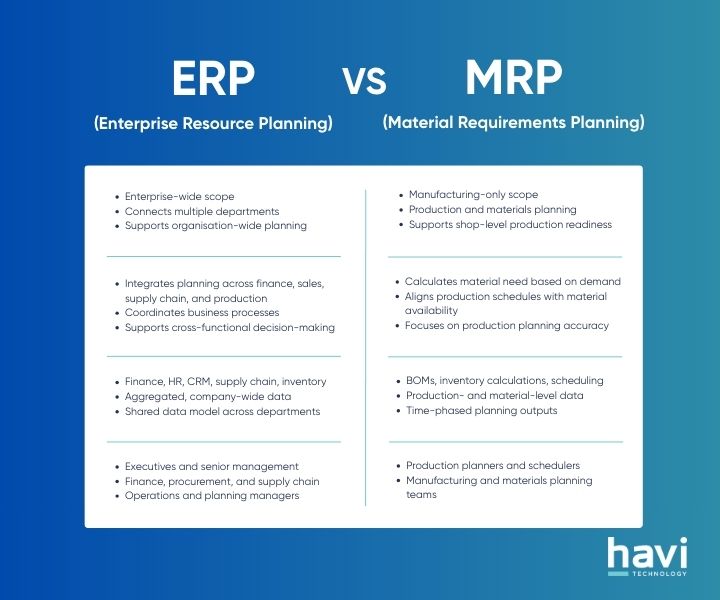
ERP vs MRP: Key Differences, How They Work Together, and When to Use Each
ERP and MRP are closely related systems, but they serve different scopes of business and manufacturing operations. MRP focuses on material planning and production scheduling within manufacturing , whi...
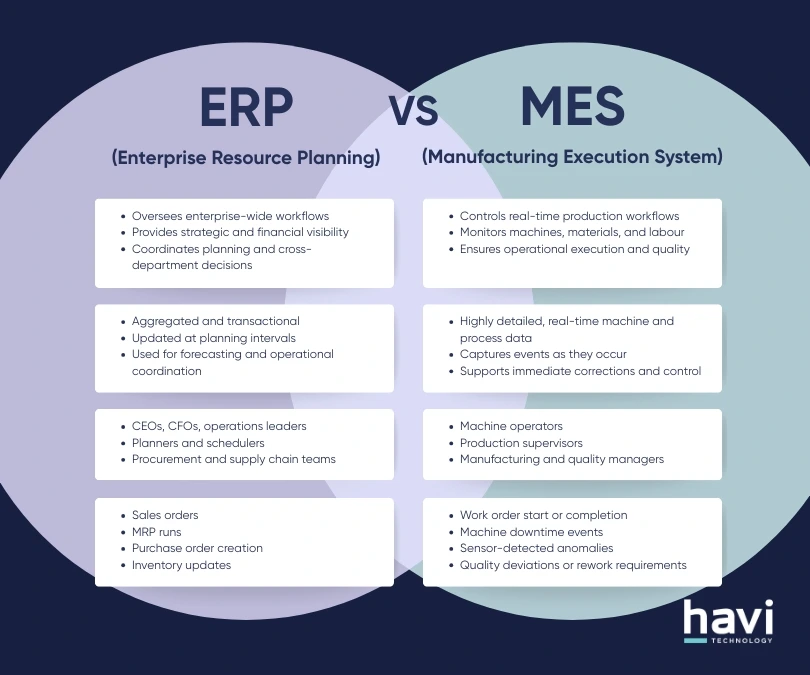
ERP vs MES: Key Differences, How They Work Together, and When You Need Both
ERP and MES are distinct but complementary systems that serve different layers of manufacturing operations . ERP manages enterprise-wide planning, finance, inventory, and coordination, while MES contr...
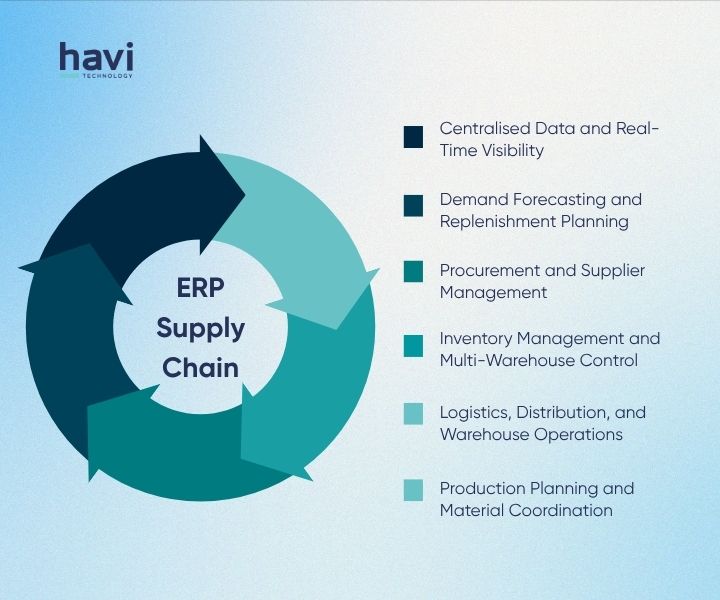
ERP Supply Chain: Definition, Core Functions, and Top 5 Vendors
ERP systems strengthen supply chain management by unifying operational data and processes across procurement, inventory, warehousing, logistics, and production . They provide end-to-end visibility, re...
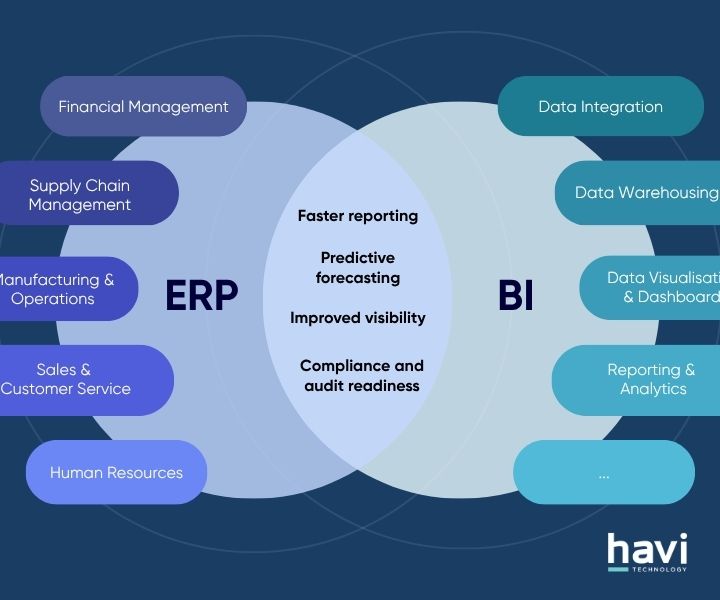
ERP BI: Overview, Differences, and ERPs with BI Capabilities
ERP BI is the combination of an Enterprise Resource Planning (ERP) system and Business Intelligence (BI) tools, where ERP collects and manages transactional data and BI analyses that data to generate ...
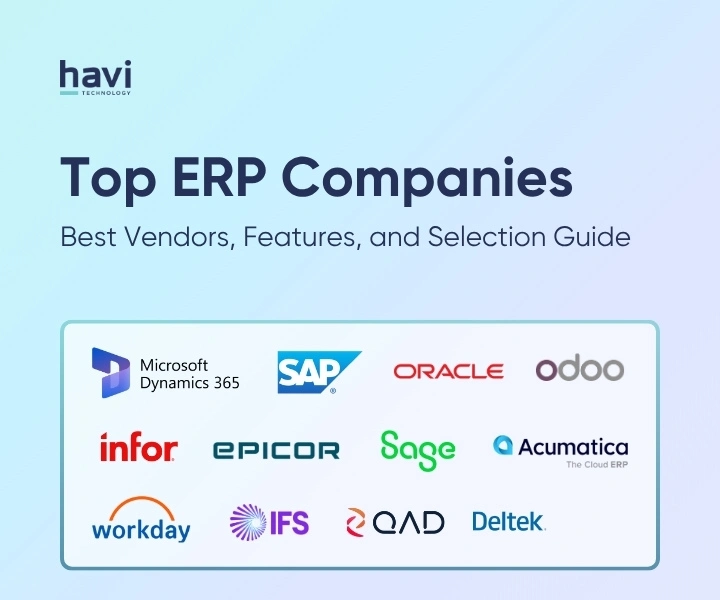
Top ERP Companies in 2026: Best Vendors, Features, and Selection Guide
ERP companies design and maintain the systems businesses use to manage finance, operations, HR, inventory and supply chain in one integrated environment . As the cloud reshapes how organisations work,...
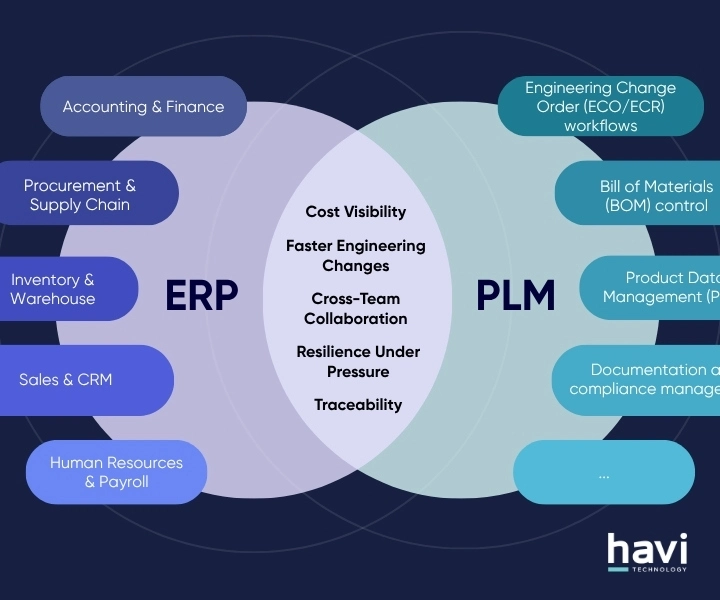
ERP vs PLM: Differences, Integration, and Value for Australian Manufacturers
ERP (Enterprise Resource Planning) and PLM (Product Lifecycle Management) are distinct but complementary systems that connect product design and business operations . PLM serves as the system of recor...
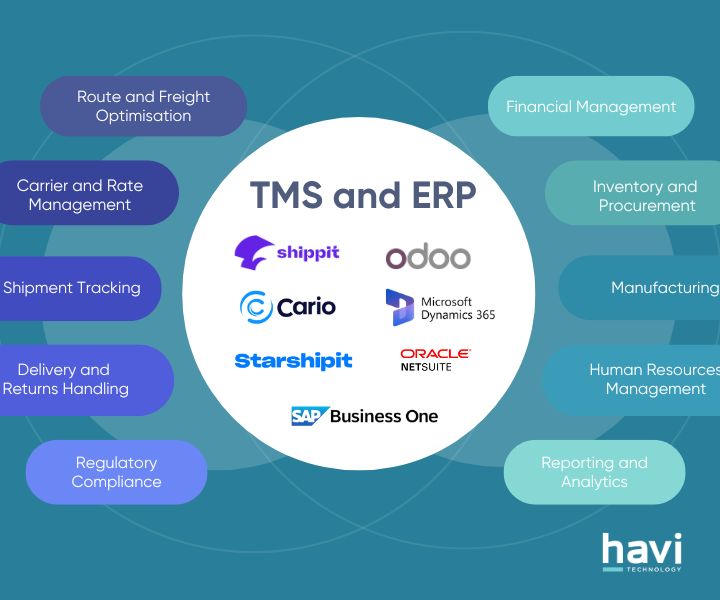
TMS vs ERP: Overview, Differences, and Integration for Australia
Transportation Management Systems (TMS) and Enterprise Resource Planning (ERP) platforms are two essential, yet distinct, operation systems that shape how businesses manage operations and logistics . ...
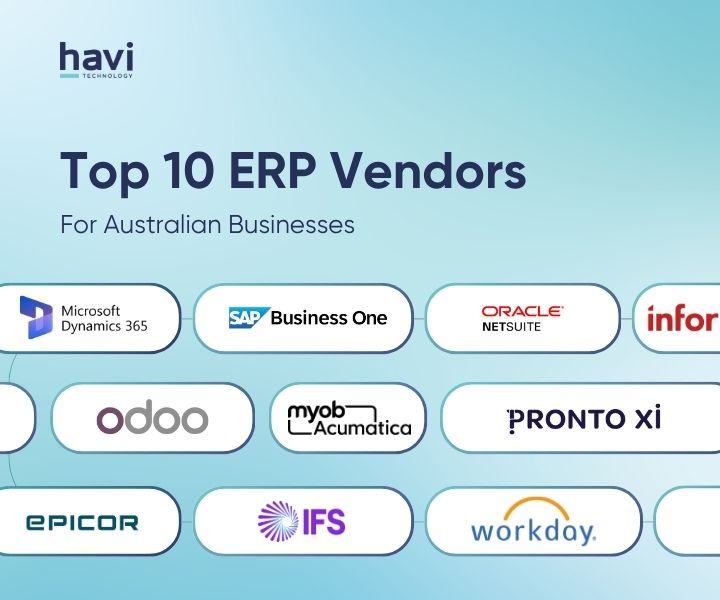
Top 10 Leading ERP Vendors for Australian Businesses
ERP vendors are specialised software providers that design, implement, and support enterprise resource planning (ERP) systems . Beyond software delivery, they act as long-term transformation partners,...
Latest Updates

ERP vs MIS: What’s the Difference and How They Work Together (2026 Guide)
ERP and MIS serve different but closely connected roles in modern business systems . ERP systems execute and record operational transactions across finance, inventory, sales, and operations, while MIS...

EDI and ERP: Differences, How They Work Together, and Why Integration Matters
EDI and ERP integration enables businesses to exchange standardised business documents, such as purchase orders, invoices, and shipping notices, directly between trading partners and internal systems ...

SaaS ERP 101: What It Is, Top Vendors, and How to Get Started
SaaS ERP is an enterprise resource planning delivery model in which applications are centrally hosted by the vendor and accessed via the internet on a subscription basis, with infrastructure, upgrades...

ERP for Startups in Australia: Top Solutions and When You Need One
ERP for startups is adopted when growing teams outgrow fragmented tools and need a single system of record to keep finance, sales, inventory, and reporting aligned . A startup ERP consolidates core wo...

ERP vs MRP: Key Differences, How They Work Together, and When to Use Each
ERP and MRP are closely related systems, but they serve different scopes of business and manufacturing operations. MRP focuses on material planning and production scheduling within manufacturing , whi...

ERP vs MES: Key Differences, How They Work Together, and When You Need Both
ERP and MES are distinct but complementary systems that serve different layers of manufacturing operations . ERP manages enterprise-wide planning, finance, inventory, and coordination, while MES contr...

ERP Supply Chain: Definition, Core Functions, and Top 5 Vendors
ERP systems strengthen supply chain management by unifying operational data and processes across procurement, inventory, warehousing, logistics, and production . They provide end-to-end visibility, re...

ERP BI: Overview, Differences, and ERPs with BI Capabilities
ERP BI is the combination of an Enterprise Resource Planning (ERP) system and Business Intelligence (BI) tools, where ERP collects and manages transactional data and BI analyses that data to generate ...

Top ERP Companies in 2026: Best Vendors, Features, and Selection Guide
ERP companies design and maintain the systems businesses use to manage finance, operations, HR, inventory and supply chain in one integrated environment . As the cloud reshapes how organisations work,...

ERP vs PLM: Differences, Integration, and Value for Australian Manufacturers
ERP (Enterprise Resource Planning) and PLM (Product Lifecycle Management) are distinct but complementary systems that connect product design and business operations . PLM serves as the system of recor...

TMS vs ERP: Overview, Differences, and Integration for Australia
Transportation Management Systems (TMS) and Enterprise Resource Planning (ERP) platforms are two essential, yet distinct, operation systems that shape how businesses manage operations and logistics . ...

Top 10 Leading ERP Vendors for Australian Businesses
ERP vendors are specialised software providers that design, implement, and support enterprise resource planning (ERP) systems . Beyond software delivery, they act as long-term transformation partners,...

